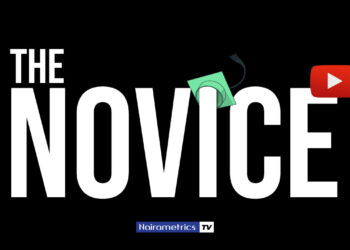A New Type of Disruptor
There are two categories of companies that don’t get enough attention and they aren’t the typical disruptors you think about when you’re talking about banks being disrupted.
The first set comprises the telcos. This is an obvious one that African banks are very wary of, as we have seen the example with mobile money majorly popularised with the success and impact of M-Pesa in Kenya and other telco mobile money offerings in other African markets.
If you consider the structure of telcos, they have the brand recognition, scale, the distribution, data, cash, and can also meet the regulatory requirements similar to such that are required of the banks. Perhaps their weak point is lack of expertise/knowledge in the financial services space but this is something they can catch up on within a short time.
The second category of companies is even a more likely and bigger threat than anticipated. The companies are the big international technology giants like Apple, Facebook, Alphabet (Google), Amazon, WeChat, and co.
These companies do not only have the advantages that the banks have, they even have stronger inherent advantages. Let’s consider some of these advantages one by one.
Larger Customer Base, Scale and Distribution
The big tech companies arguably have the largest customer base of any business category in the world. I can’t think of any other company that can boast of over 2 billion registered users globally apart from Facebook or any other company that has the penetration level of Google.
Bringing it home, it can be estimated that Facebook has about 50 million active users in Nigeria across their different platforms. This number is more than the stipulated number of unique BVNs linked to bank accounts of 45 million (BVN is Nigeria’s Bank Verification Number).
This is an unbeatable pool of customers to distribute products and services to.
Network Effects
The network effect is a concept whereby a platform becomes more valuable for members as new customers join the platform.
With this feature, it becomes pretty easy for these tech companies to not just grow really fast, but to build another moat that even the banks cannot compete with.
A Large Cash Base
The tech companies don’t just have the scale and network effects, they also have loads of cash to play and experiment with.
Apple had a cash reserve of $285 billion as at December 2017, (that’s more than half the GDP of Nigeria), Facebook has over $25 billion, Google has about $90 billion, similar amounts go for Amazon, Microsoft and co.
These companies are the only few companies globally that can outspend the banks if/when the race for offering financial services to customers becomes a battle of cash.
A Strong and Reliable Brand
In Nigeria today, one can argue that Facebook is more popular than a lot of the banking brands considering that there are people who know Facebook and Google even when they’ve never used the internet.
The strong brand recognition that these companies have built means that they don’t even have to do too much to get customers to trust them with their money.
Customer Experience DNA
The big tech giants are special when it comes to customer experience. They have been able to scale to an enormous size while maintaining a strong user experience focus that banks can’t even come close to.
Where the banks have had to make a trade-off between scale and user experience, the tech companies have been able to brilliantly operate at the intersection of both and a major reason this is possible is that they have been able to properly leverage data.
Data
Despite the recent privacy and data concerns and the increasing customer awareness to the enormous amount of data that the big tech companies have about everyone, it doesn’t seem like so many people have a choice or are able to do much about it.
While the banks have some insightful financial data about consumers, the data that the big tech giants have on customers makes the banks’ data look like child’s play.
Imagine how tailored and super relevant the financial products and services will be with the amount of data that these companies already have.
Should the Banks be Concerned?
While I think this is something every bank should really be thinking about, the consolation for Nigerian banks is that Nigeria is not that much of priority for a lot of the big tech companies because they are still very busy making giant strides across developed markets and disrupting other industries, that their impact or threat on the financial services industry isn’t so worrisome yet.
But we cannot deny the fact that these companies are coming and have what it takes to make a significant dent on the financial services industry more than the fintech companies, if and when they choose to participate.
I think there is a more proactive solution that happens at the intersection of banks and Fintechs.
While banks might be strong on their own, I believe they can be made significantly stronger and are in better positions to maintain future relevance with the adoption and incorporation of new innovations that are being introduced by startups.
There is also a major weakness in the banks that fintechs are well suited to tackle head-on.
The scale of banks means that they are generalists, so there’s usually a trade-off. While scale reduces risk, it also means that the banks don’t get to delight a specific set of customers.
It is essentially because of this lack of focus and deficiencies in customer services that fintech companies have come on board to focus on specific areas of financial services and try to create better experiences for the customers.
The biggest advantage for fintechs is the ability to bring transparency, efficiency and better user experience to every area where the traditional banks have been offering below par services to customers.
Fintechs are able to do this because of a focused approach that ensures products are well tailored to meet customers’ specific needs, a low cost structure that makes it possible to offer more affordable rates, lack of legacy structures and over-regulation that enables them serve segments of the market ignored by the banks and a nimble disposition that provides the speed to move faster and incorporate the latest trends and innovation in product and service delivery.
While it remains a struggle for Fintechs to achieve scale independently, banks struggle to delight their customers and are at the threat of being made irrelevant by telcos and popular global tech companies.
Conclusion
My submission, therefore, is that it is really hard to disrupt banks. Fintechs are innovating in the financial services space but aren’t necessarily disrupting as much as we all like to think.
The real disruption to banks in Africa and even globally is more likely to come from telcos and global tech giants than from typical pure fintechs. I believe that the best bet for banks and fintechs to stand a good chance of retaining relevance in the future is to work together.
The fintechs have one or two things to teach the banks about new customer expectations and digital transformation and the banks can help fintech companies scale and build sustainable and viable businesses.
A partnership offers the banks a potential path to new markets, new products and growth opportunities. This is not new because most of the “successful fintech startups” in Africa today have some form of strong bank affiliations.
Writer: Segun Adeyemi






















